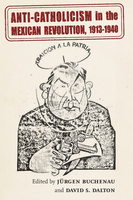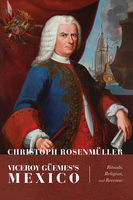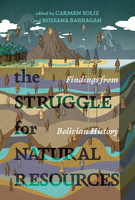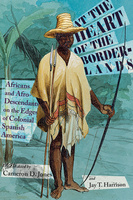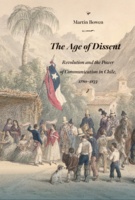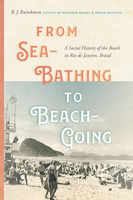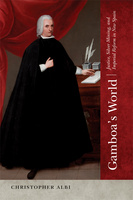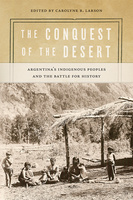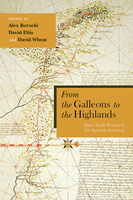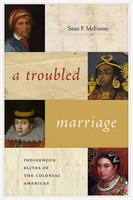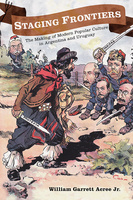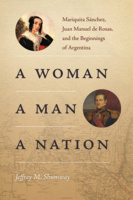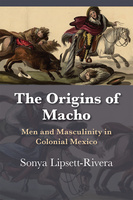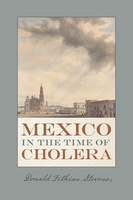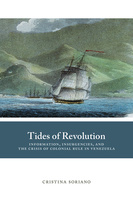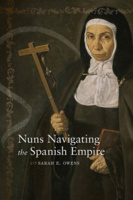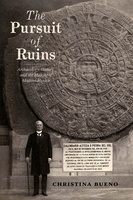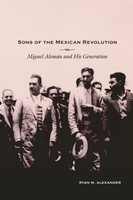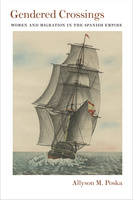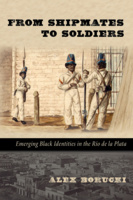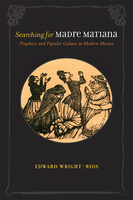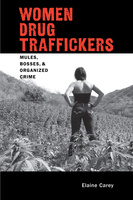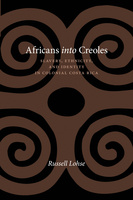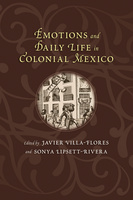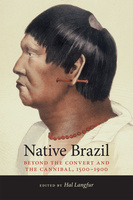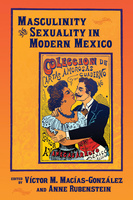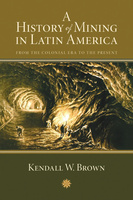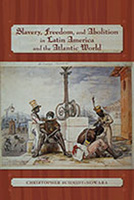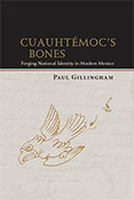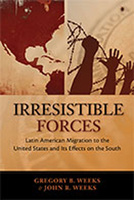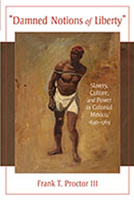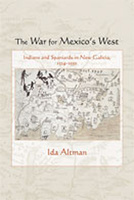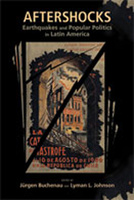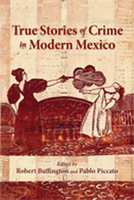Anti-Catholicism in the Mexican Revolution, 1913-1940
The Struggle for Natural Resources
Findings from Bolivian History
At the Heart of the Borderlands
Africans and Afro-Descendants on the Edges of Colonial Spanish America
The Age of Dissent
Revolution and the Power of Communication in Chile, 1780–1833
From Sea-Bathing to Beach-Going
A Social History of the Beach in Rio de Janeiro, Brazil
Gamboa's World
Justice, Silver Mining, and Imperial Reform in New Spain
Gamboa's World examines the changing legal landscape of eighteenth-century Mexico through the lens of the jurist Francisco Xavier de Gamboa (1717-1794).
The Conquest of the Desert
Argentina’s Indigenous Peoples and the Battle for History
This collection explores issues of settler colonialism, Indigenous-state relations, genocide, borderlands, and Indigenous cultures and land rights through essays that reexamine one of Argentina's most important historical periods.
From the Galleons to the Highlands
Slave Trade Routes in the Spanish Americas
Students and scholars will find the comprehensive study and analysis in From the Galleons to the Highlands invaluable in examining the study of the slave trade to colonial Spanish America.
A Troubled Marriage
Indigenous Elites of the Colonial Americas
A Troubled Marriage describes the lives of native leaders whose resilience and creativity allowed them to survive and prosper in the traumatic era of European conquest and colonial rule.
Staging Frontiers
The Making of Modern Popular Culture in Argentina and Uruguay
In this expansive and engaging narrative William Acree guides readers through the deep history of popular entertainment before turning to circus culture and rural dramas that celebrated the countryside on stage.
A Woman, a Man, a Nation
Mariquita Sánchez, Juan Manuel de Rosas, and the Beginnings of Argentina
Mariquita's and Juan Manuel's lives corresponded with the major events and processes that shaped the turbulent beginnings of the Argentine nation, many of which also shaped Latin America and the Atlantic World during the Age of Revolution (1750-1850).
The Origins of Macho
Men and Masculinity in Colonial Mexico
Lipsett-Rivera traces the genesis of the Mexican macho by looking at daily interactions between Mexican men in the seventeenth and eighteenth centuries.
Mexico in the Time of Cholera
The book takes the devastating 1833 cholera epidemic as its dramatic center and expands beyond this episode to explore love, lust, lies, and midwives.
Tides of Revolution
Information, Insurgencies, and the Crisis of Colonial Rule in Venezuela
This is a book about the links between politics and literacy, and about how radical ideas spread in a world without printing presses.
Mexico City, 1808
Power, Sovereignty, and Silver in an Age of War and Revolution
Tutino offers a new vision of the political violence and social conflicts that led to the fall of silver capitalism and Mexican independence in 1821.
Murder in Mérida, 1792
Violence, Factions, and the Law
This book recounts the mystery of the Gálvez murder and its resolution, an event that captured contemporaries' imaginations throughout the Hispanic world and caused consternation on the part of authorities in both Mexico and Madrid.
Nuns Navigating the Spanish Empire
Nuns Navigating the Spanish Empire tells the remarkable story of a group of nuns who traveled halfway around the globe in the seventeenth century to establish the first female Franciscan convent in the Far East.
The Pursuit of Ruins
Archaeology, History, and the Making of Modern Mexico
The Pursuit of Ruins argues that the government effort to take control of the ancient remains in Mexico took off in the late nineteenth century during the dictatorship of Porfirio DÃaz.
Sons of the Mexican Revolution
Miguel Alemán and His Generation
Using a wide array of new archival sources, Alexander demonstrates that the transformative political decisions made by civilian government officials, after the 1946 election, represented both their collective values as a generation and their effort to adapt those values to the realities of the Cold War.
Creating Charismatic Bonds in Argentina
Letters to Juan and Eva Perón
Focusing on the first era of Peronism, from 1946 to 1955, this work shows how President Perón and the First Lady created charismatic ways to link themselves to Argentine supporters through letter writing.
Gendered Crossings
Women and Migration in the Spanish Empire
Gendered Crossings brings to life the diverse settings of the Iberian Atlantic and the transformations in the peasants' gendered experiences as they moved around the Spanish Empire.
From Shipmates to Soldiers
Emerging Black Identities in the Río de la Plata
This book analyzes the lives of Africans and their descendants in Montevideo and Buenos Aires from the late colonial era to the first decades of independence.
Searching for Madre Matiana
Prophecy and Popular Culture in Modern Mexico
Edward Wright-Rios examines the much-maligned--and sometimes celebrated--character of Madre Matiana and her position in the development of Mexico.
Women Drug Traffickers
Mules, Bosses, and Organized Crime
"The first full-length study of female drug traffickers. The lives of these women are fascinating and skillfully analyzed by the author. The book will be pleasurable reading to general readers and specialists alike."--Howard Campbell, author of Drug War Zone: Frontline Dispatches from the Streets of El Paso and Juárez
Africans into Creoles
Slavery, Ethnicity, and Identity in Colonial Costa Rica
Unlike most books on slavery in the Americas, this social history of Africans and their enslaved descendants in colonial Costa Rica recounts the journey of specific people from West Africa to the New World.
Emotions and Daily Life in Colonial Mexico
The history of emotions is a new approach to social history, and this book is the first in English to systematically examine emotions in colonial Mexico.
Native Brazil
Beyond the Convert and the Cannibal, 1500-1900
This volume is a significant contribution to understanding the ways Brazil's native peoples shaped their own histories.
Masculinity and Sexuality in Modern Mexico
Modernizing Minds in El Salvador
Education Reform and the Cold War, 1960–1980
A History of Mining in Latin America
From the Colonial Era to the Present
Slavery, Freedom, and Abolition in Latin America and the Atlantic World
Why slavery was so resilient and how people in Latin America fought against it are the subjects of this compelling study.
Cuauhtémoc's Bones
Forging National Identity in Modern Mexico
In this engaging study, Paul Gillingham uses the revelation of the forgery of Cuauhte?moc's tomb and the responses it evoked as a means of examining the set of ideas, beliefs, and dreams that bind societies to the nation-state.
Irresistible Forces
Latin American Migration to the United States and its Effects on the South
This study examines the phenomenon of the impact of Latin American migration on the southeastern United States, a region that now has the nation's fastest growing immigrant population.
Damned Notions of Liberty
Slavery, Culture, and Power in Colonial Mexico, 1640-1769
This study explores the lived experience of slavery from the perspective of slaves themselves to reveal how the enslaved may have conceptualized and contested their subordinated social positions in New Spain's middle colonial period (roughly 1630-1760s).
The War for Mexico's West
Indians and Spaniards in New Galicia, 1524-1550
Altman has undertaken the challenging task of examining the Spaniards' attempt to conquer and settle the western region of Mexico (New Galicia).
Black Mexico
Race and Society from Colonial to Modern Times
This edited volume compiles the most recent research on a pivotal topic in Latin American history--Afro-Mexican experiences from pre-conquest to the modern period.
Aftershocks
Earthquakes and Popular Politics in Latin America
In using natural disasters as a way to study societal and especially political change, the essays in this volume illustrate the immediate as well as the long term consequences of destruction.
True Stories of Crime in Modern Mexico
This edited volume focuses on Mexico's social and cultural history through the lens of celebrated cases of social deviance from the late nineteenth and early twentieth centuries.

